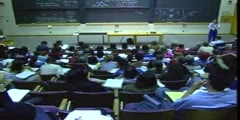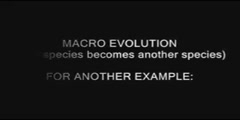Lec 23 - Durkheim's Theory of Anomie
"Lec 23 - Durkheim's Theory of Anomie" Foundations of Modern Social Thought (SOCY 151) In the transition from mechanical solidarity to organic solidarity, brought on by increasing division of labor, industrialization, and urbanization, Durkheim argues that there will be social pathologies, which he calls anomie. These abnormal and unhealthy consequences of the change in type of social solidarity have various causes. Durkheim is best known for arguing that a lack of moral regulation leads to social pathologies, but he also argues that overregulation—in the form of forced division of labor—will lead to fatalism, a kind of anomie. Anomie resulting from excessive demands on individuals from the market is similar to Marx's notion of alienation, although Durkheim does not use the terms alienation or exploitation. For Durkheim, anomie is an irregular form of the increasing division of labor and industrialization; it is not internal to the system itself. Durkheim's optimism about capitalism and his position that people need regulation, similar to Hobbes's conception of human nature, contrast sharply with Marx's ideas. 00:00 - Chapter 1. Review of "The Division of Labor in Society" 11:14 - Chapter 2. Anomie: Abnormal Consequences of the Divisions of Labor 38:15 - Chapter 3. Comparing Anomie, Alienation and Disenchantment 43:24 - Chapter 4. Theory on Human Nature Complete course materials are available at the Open Yale Courses website: http://open.yale.edu/courses This course was recorded in Fall 2009.
Video is embedded from external source so embedding is not available.
Video is embedded from external source so download is not available.
Channels: Sociology
Tags: Lec 23 - Durkheim's Theory of Anomie
Uploaded by: yalemodsocialth ( Send Message ) on 14-09-2012.
Duration: 46m 42s
Here is the next lecture for this course
Chemical Science - Molecular Orbital Theo ...
50:51 | 32433 viewsThe valence bond theory
49:54 | 23849 viewsChemical Science - The Shapes of Molecule ...
43:18 | 31889 viewsChemical Science - Transition Metals: Cry ...
40:23 | 13511 viewsAn unified theory of everything
02:11 | 8031 viewsValence shell electron pair repulsion theory
03:20 | 17041 viewsNeal Adams Expanding Earth Theory - The F ...
02:59 | 19333 viewsBig bang theory
05:58 | 19147 viewsTheory of Metallic Conduction: Biased Ran ...
00:12 | 6707 viewsTheory of relativity: space and time
05:42 | 10383 viewsElectric Maintenance Fundamentals - AC-DC ...
06:27 | 8180 viewsEvolution: A Theory in Dilemma - IPU Edition
04:45 | 5614 viewsTime Travel- Einsteinss big idea -Theory ...
04:11 | 8306 viewsDarwins Theory - True of False?
09:27 | 10346 viewsSpecial theory of relativity and simultaneity
02:03 | 9278 viewsNo content is added to this lecture.
This video is a part of a lecture series from of Yale
Lecture list for this course
Lec 2 -Hobbes: Authority, Human Rights and Social Order
Lec 3 -Locke: Equality, Freedom, Property and the Right to Dissent
Lec 4 -The Division of Powers- Montesquieu
Lec 5 - Rousseau: Popular Sovereignty and General Will
Lec 6 - Rousseau on State of Nature and Education
Lec 7 - Utilitarianism and Liberty, John Stuart Mill
Lec 8 - Smith: The Invisible Hand
Lec 9 - Marx's Theory of Alienation
Lec 10 - Marx's Theory of Historical Materialism (1)
Lec 11 - Marx's Theory of Historical Materialism (cont.)
Lec 12 - Marx's Theory of History
Lec 13 - Marx's Theory of Class and Exploitation
Lec 14 - Nietzsche on Power, Knowledge and Morality
Lec 15 - Freud on Sexuality and Civilization
Lec 16 - Weber on Protestantism and Capitalism
Lec 17 - Conceptual Foundations of Weber's Theory of Domination
Lec 18 - Weber on Traditional Authority
Lec 19 - Weber on Charismatic Authority
Lec 20 - Weber on Legal-Rational Authority
Lec 21 - Weber's Theory of Class
















